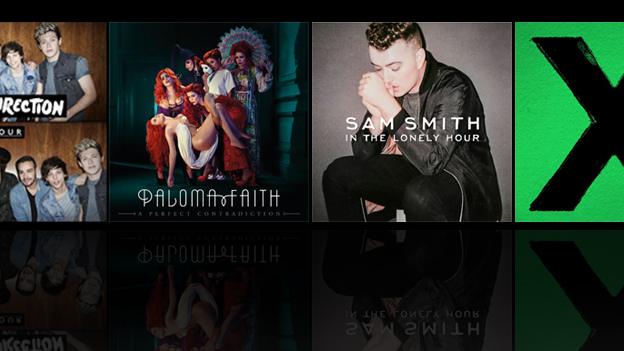Q&A: Album chart changes
- Published
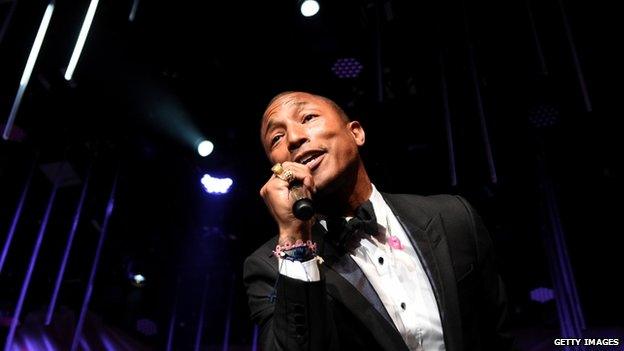
Get Lucky by Daft Punk - featuring Pharrell Williams - has been streamed a "vast" number of times
The Official Album Chart is to incorporate streaming data for the first time next month.
The move comes as more and more music fans access their music on services like Google Play and Spotify, while sales of CDs steadily decline.
Streaming has been included in the singles chart since last July, but adding the data to the album chart poses more problems for chart compilers.
Chart company boss Martin Talbot explains the background and methodology behind the new rules.

Is this the next logical step after amending the singles chart last year?
It's a different chart but a similar kind of move. It's about reshaping the official albums chart so it's ready to reflect changing consumption habits - both now and in the future.
Is it fair to say the album chart moves more slowly than the singles one?
Yes and no. You tend to get fanbase albums going straight into the top of the chart then dropping out again, in a way that you don't with the singles chart.
I find the albums chart is very overlooked - in that many of the artists who've topped the chart are the coolest and the most creative artists in the history of music. Led Zeppelin have never had a number one single, but they had eight number one albums.
I assume most people on streaming services cherry-pick album tracks, or make playlists of their favourite songs. How will that translate to a sales-based album chart?
There are many tracks that do huge volumes of streams. Uptown Funk, for example, has achieved two million streams for the last six or seven weeks. Over the last couple of years Rather Be by Clean Bandit and Get Lucky by Daft Punk have all got vast amounts of streams.
If you were to include those songs' raw streaming data as part of an album, effectively the chart could become a reflection of artists who have one big hit single.
So our methodology protects the album as a body of work. We take the 12 most-streamed tracks on an album, and we down-weight the two most popular tracks to make sure the hit singles don't skew the overall performance.
Then we tot all those streams up and use a conversion rate of 1,000-to-1 to reflect the difference in value between an album and a stream, and that's it.
What if it's a 20-track album?
The finer details are quite complicated. Some albums have 12 tracks, some have 20. Box sets have 40 or even 60. We didn't want an album to get an unfair advantage by having 40 tracks on it. So we wanted to reflect consumption and enjoyment of the main body of the album.
And what if there are fewer - Van Morrison's Astral Weeks or Radiohead's King of Limbs both have eight tracks?
We'll apply the same methodology. There are peripheral cases where an album that only has eight tracks might be slightly under-represented. But, proportionally, once you divide everything by a thousand, we're not talking about a huge impact. And we'll continue to monitor these things and make sure they're working properly.
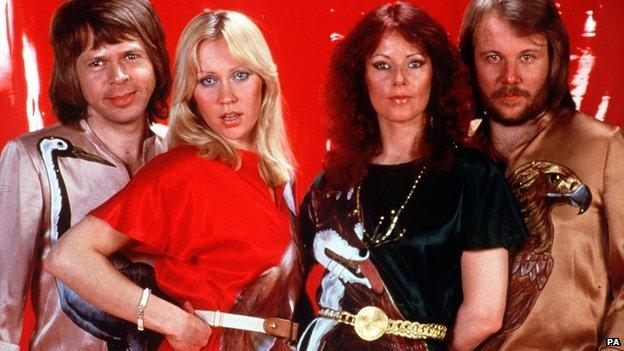
Could Abba be in the album chart for the rest of time?
It raises the question of what constitutes an album in 2015.
The definition of an album has often been set by the prevalent format. Back in the '70s and '80s, albums were 10 tracks. When CDs came along, with a capacity of 80 minutes, that enlarged to 18 or 20 tracks. Now we're entering a new era of streaming where there's no real limit.
What do you define as an album? We're still using the rules which have stayed in place for some time - which is that an album needs to be five tracks or more, and at least 25 minutes long. Those are industry norms and accepted definition but, who knows, they may evolve over time.
It's seven months since streaming was incorporated into the singles chart. What tweaks have you made?
We haven't done a lot, I'll be completely honest with you. That's partly because we've been focusing all of our attention on this. But we're quite comfortable that the addition of streams into the singles chart isn't misrepresenting the popularity of tracks in any particular way.
And you're still not counting YouTube in your streaming data?
No, not at the moment. That's another one of those issues we'll continue to monitor and we're speaking to them.
How do labels feel about that? Katy Perry must be furious that no-one's counting the 800 million people who watched her Dark Horse video.
To be honest, there's not a great push from the labels.
What about those old perennials - they must thrive on Spotify? Do we now face the prospect of Abba Gold being in the top 75 for the rest of time.
I don't know about that! We've got test charts going back to the beginning of last year and that's not something that's jumped out.
So what have you seen?
Broadly speaking it's really dull. It's not like rock music will suddenly do much worse. The reality is that the tests show streaming has a minimal impact, certainly at the top of the charts.
To take the singles chart as an example, you always get people saying, "now you can get to number one on streams alone" but you can't. We're a long way from that.
The average number one single last year achieved sales of over 100,000 copies a week. The most-streamed track of all time in the UK generated streams of 2.5 million, which boils down to 2,500 sales.
But having said that, we take those test charts with a pinch of salt. If you go back to January last year, we're talking about 190 million streams delivered every week. This January, the average was 360 million delivered every week. So the growth in the market has been such that, proportionally, the streams will have a greater impact at the end of this year than they are now.
- Published23 June 2014
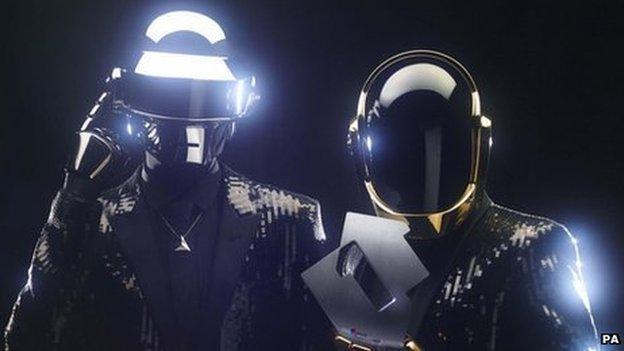
- Published6 July 2014
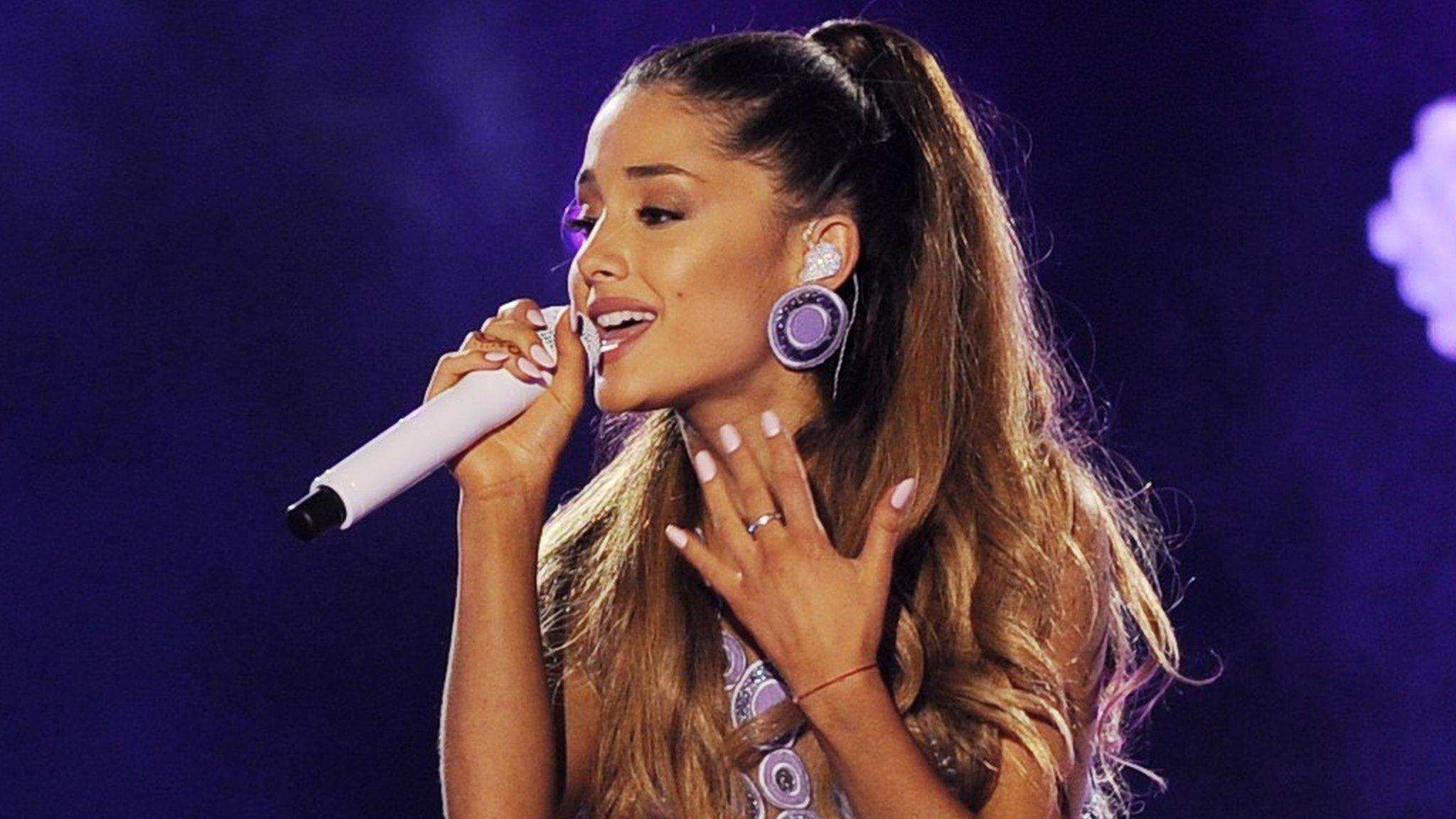
- Published27 June 2014

- Published1 January 2015
